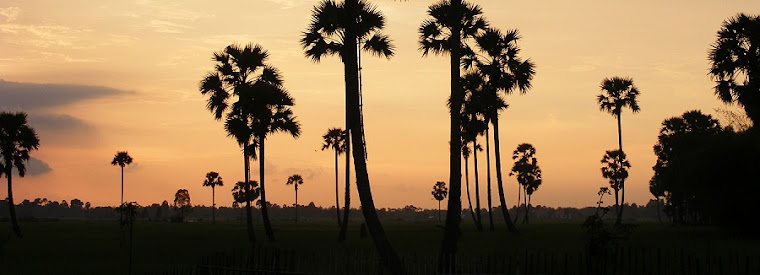My job is in full swing now. My co-worker Keke and I are
busy recruiting for MCC’s Seed exchange program in Southern Africa and finding
placements for the participants with our various agriculture/food-security
related partners. In order to do this, we have the great privilege of traveling
and visiting these partners in person.
 |
| The Tete countryside is beautiful in the rainy season. |
 |
| At Thole dam in Tete |
Our first stop after some orientation in Johannesburg was
the sand-dam project in Tete, Mozambique. It was great connect again with old
friends and colleagues. After showing Keke around my old stomping grounds, I
had the great pleasure to accompany her to her home country of Lesotho. The
official purpose of our visit was to see the MCC partner, but more meaningful
to me was getting to see Keke in her home country and get to know her family
and friends. Even before we got to her hometown, it was clear Keke was in her
element. Not 30 minutes after stepping foot in the country she was bargaining
my bride price with our taxi driver. She set it at 20 cows, which the driver
seemed to think was a bit steep. Since I don’t speak Sesotho, I was blissfully
unaware of the negotiations going on beside me.
After arriving in Lesotho Friday afternoon we went to
Paballong, an HIV/AIDS care centre, which strives to care for the holistic
well-being of people living with HIV/AIDS. The caretaker gave us a lovely tour
of the place. In addition to the clinic,
which provides free care for any secondary sicknesses, they have a child-care
centre, youth program, and a thriving farm which provides income for the
project, food for the visiting patients, and serves as a demonstration farm for
those who want to learn vegetable gardening in order to provide for their
families. We ate fresh peaches and grapes from the tree and vine until we could
eat no more.
 |
| View of the farm and peach orchard at Paballong. They are currently setting up a drip irrigation system to help conserve water during times of shortage. |
On Saturday we took the bus to Keke’s parents’ house. We
spent the day relaxing. Her brother tried over the course of a couple of hours
to explain the rules of cricket as we watched on TV. I sort of got the rules,
but still don’t get why anyone would invent a game that takes days to play.
In the late afternoon we ate more peaches.
 |
| Sporting Keke's father's Basotho hat, holding a bucket of peaches. They peaches are small this year due to drought, the size of an apricot, but delicious nevertheless. |
Sunday morning we went to visit some colleagues of Keke’s
that she used to work with. It is an organization that promotes the use of
solar “sun stoves.” In a place where wood is scarce and fuel expensive, solar
cooking is an excelling idea. They target grandparents who often care for their
grandchildren, the parents having left the country to find work. It was the
final day of training for this particular community in Mafeteng. We got there a
bit late for the training, but just in time to see raisin bread come out of 50
ovens.
 |
| Fresh bread! |
Sunday afternoon we made our way to Growing Nations Trust-
the poster child of Conservation Agriculture and youth involvement in the
country. I finally got to see the place I’ve heard so much about! Keke is a
product of their resident training program, and went on to do IVEP where she
spent a year in Canada with MCC, and now she is the co-facilitator of Seed. We
visited the field on Monday morning, and I got a tour of their fields. Though
their hard work and vision did not fail to impress, practical application is
suffering this year due to a regional drought. El Niño is having devastating
effects on the ground this year. These are subsistence farmers who often have
no other source of income besides their farms, and yet they have not planted
anything during the rainy season because it has not rained. Even the weeds
aren’t growing. We saw the same in Mozambique. People are now hoping for a
successful winter crop, which they will harvest in July, assuming they get some
late rains that will carry them through. Conserving water and soil humidity is
now more important than ever. This
farmer has been diligently applied all of the CA principles on his little plot:
he didn’t plough; he deeply mulched the field; intercropped maize and
leguminous plants; and applied chicken manure as fertilizer. Neighbours thought
this farmer was crazy to work so much to cultivate such a small plot, but the
promise of something is better than the certainty of nothing.

 |
| Farmer Kelebone showing me his maize/bean plot. Notice the great mulch and excellent example of intercropping. We are standing on the edge so it is hard to see, but the beans are covering the ground between rows of maize. |
 |
An experiment at Growing Nations farm. This field was divided in two:
the half pictured below they let animals to graze- there is no soil cover and some
nasty weeds are taking hold. On the half above, there was no grazing. There is lots
of mulching, and fewer weeds. Wheat was planted in lines using a ripper
on the same day for both fields. but it hasn't rained since. Can you see
which one has germinated? |
In other news, I have moved to Zimbabwe, have received my work permit, and finally have my own apartment in Bulawayo!










No comments:
Post a Comment